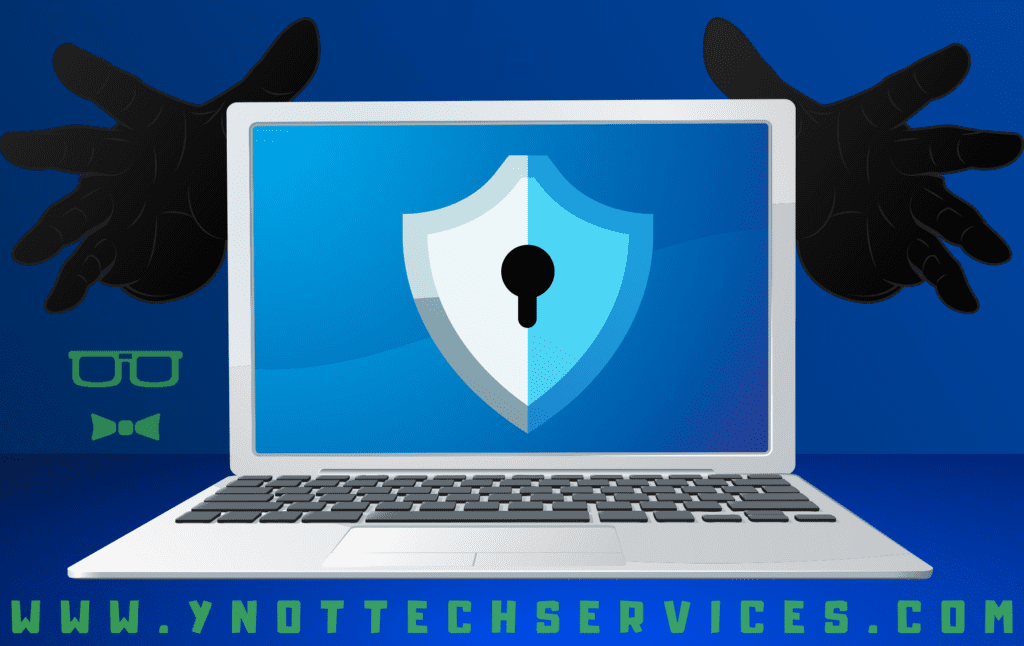Smart Ways to Secure Your Laptop
Are you reading this on a laptop? Take a moment to imagine how you’d feel if your laptop were stolen. Maybe you looked away for a moment at the airport or coffee shop, or someone broke into your car or house. It could be disastrous.
Laptop theft is a real problem. Security software provider Norton reports that over 97% of stolen laptops are never recovered. Laptops are an easy and effective target for bad actors. Some 44% of thieves target laptops for their resale value. Meanwhile, 56% contain sensitive information.
What’s on your laptop?
If you’re a lawyer, you might have sensitive case data on your laptop. Or someone in the medical field might have patient data on there. Financial advisors could have private details about clients, or you may have intellectual property stored on your laptop.
Even if you don’t have any of these on your computer, you may have automatic log-in on your laptop. In that case, a bad actor who gains access to your laptop may be able to log into your workplace network. All it takes is one click using your saved access credentials.
Never use a laptop again?
Yes, the security risks related to laptops can be scary. Still, we’re not recommending that you refuse to use a laptop anywhere outside of your office. Instead, couple a laptop’s convenience with smart security measures.
Remote Wipe
Part of mobile device management, this solution sets your laptop up for remote access. Protect against data loss by making it so the stolen or misplaced laptop wipes all its data as soon it’s online.
You can configure the wipe solution to remotely delete certain files or folders on a device, or it can wipe all the device’s hard drives or render the device unusable.
Still, there are limitations to this approach. The device needs to be online to receive the administrator’s command. The administrator needs to know about the loss or theft to send the command. Plus, in some cases, the wiped data may still be recoverable by motivated attackers.
That’s why we’d also recommend you use encryption.
Full Disk Encryption (FDE)
Set up your laptop to encrypt the entire hard drive. This protects more than single files or folders, known as file-level encryption (FLE). Instead, FDE converts all information into a format accessible only to those with permission to decrypt it. This makes it challenging for a bad actor to make sense of everything on your laptop.
Think of it this way: If your laptop were a house, FLE would be a lock on each door of the house, whereas FDE secures the entire house (front and back doors and windows).
Both Windows and macOS offer built-in encryption options. You could try BitLocker for Windows and FileVault for macOS.
Other Laptop Security Best Practices
Of course, the best thing to do is avoid storing any sensitive information on your laptop. Other top strategies to secure laptops include:
- setting a strong password or passphrase on your laptop user account;
- enabling two-factor authentication to access your laptop;
- using secure Web browsers and avoiding using public Wi-Fi networks;
- backing up your data regularly to an external hard drive, cloud storage, or a network location.
With the right strategies, you can significantly enhance the security of your laptop. Reduce the risks associated with potential threats. We can help.Book an appointment today:


